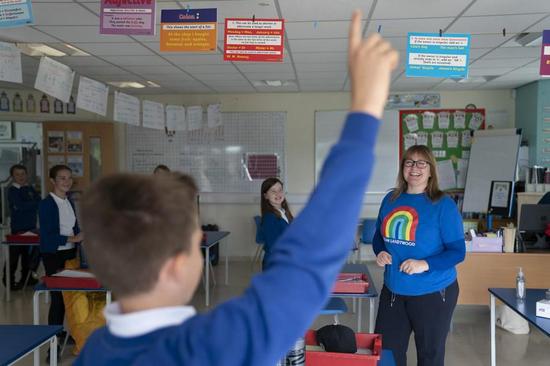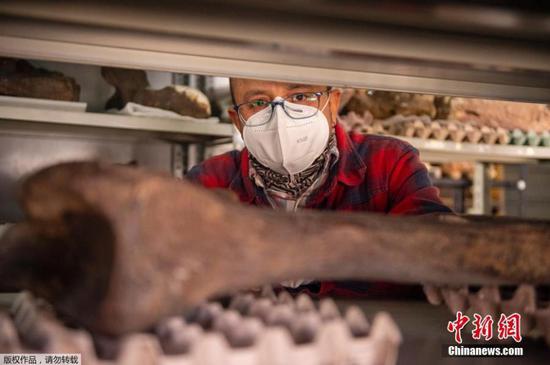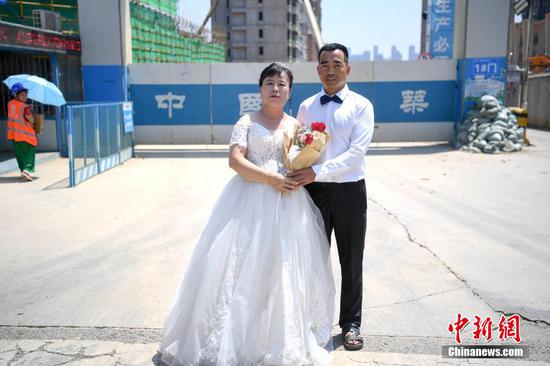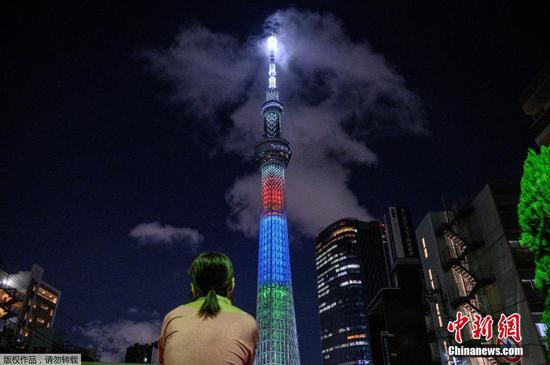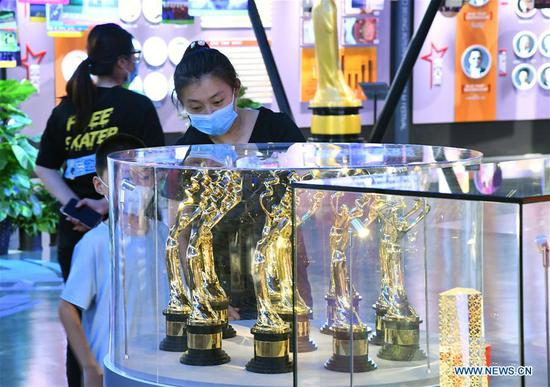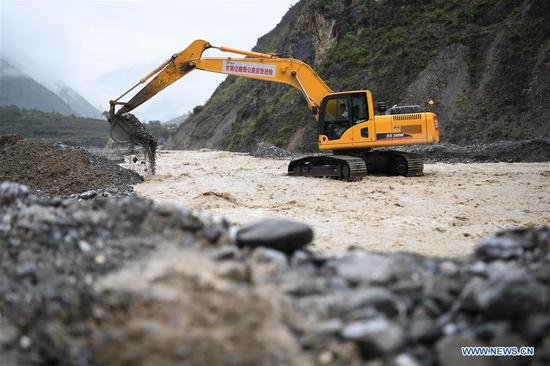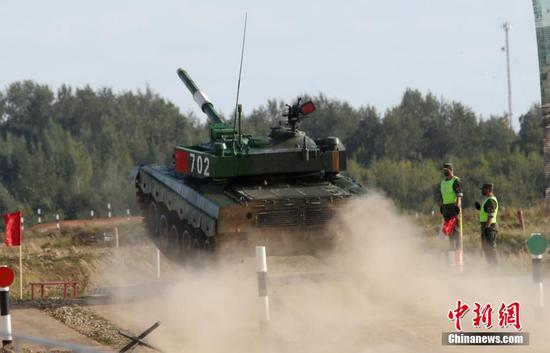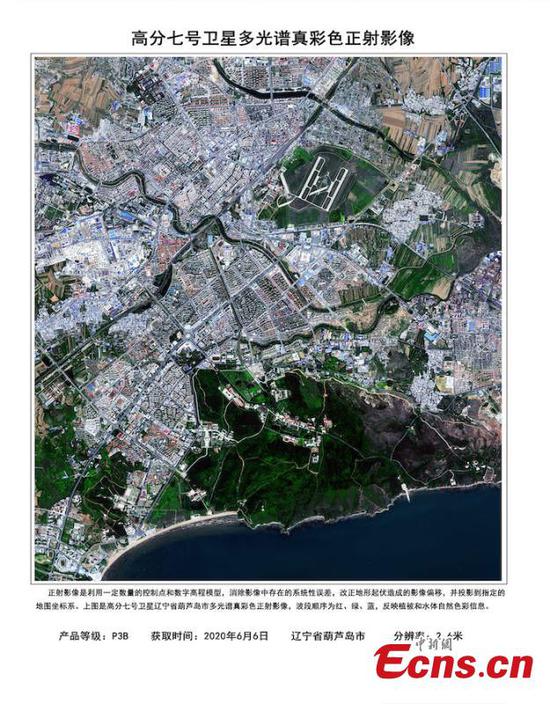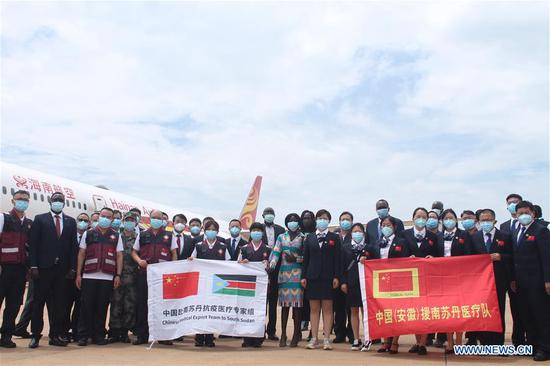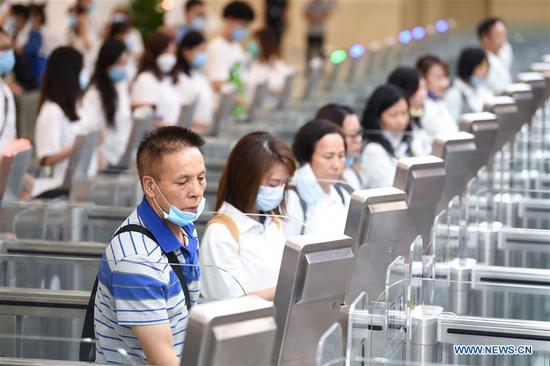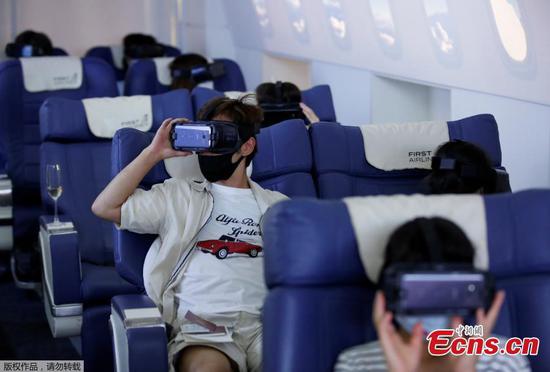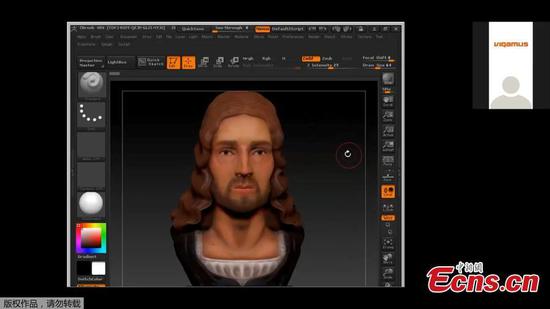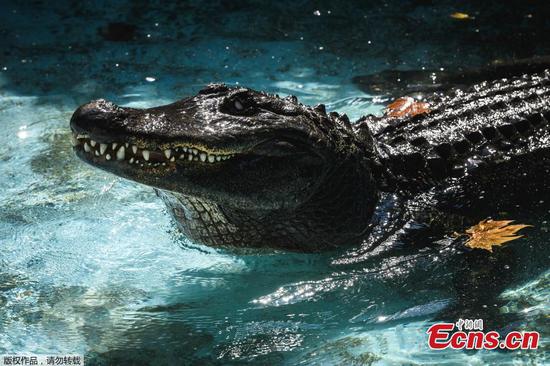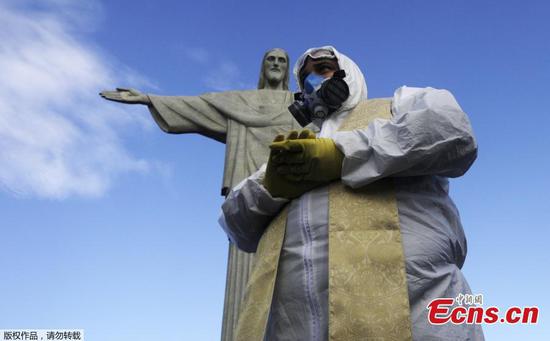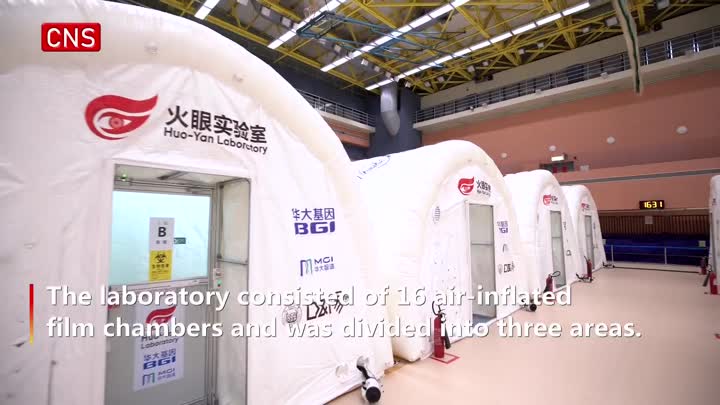
Photo taken on Aug 21, 2020 shows a logo of the video-sharing social networking company TikTok's Los Angeles Office in Culver City, Los Angeles County, the United States. (Photo/Xinhua)
National security concern deemed hazy for Trump order requiring U.S. divestiture
Two executive orders by U.S. President Donald Trump that have put TikTok's U.S. operations in play for a potential sale are puzzling experts who point to the unusual legal basis for his stepped-up actions against the Chinese video-sharing app.
Trump issued two executive orders on Aug 6, with each banning United States transactions with Tik-Tok and Chinese social media app WeChat from Sept 20 over national security concerns. A second order against TikTok followed a week later.
The first two orders draw legal authority from the International Emergency Economic Powers Act, or IEEPA, which allows the president to regulate economic transactions in a national emergency.
"It's very unusual for it (IEEPA) to be used this way to declare that there's a national emergency, because of national security reasons, that requires prohibition on transactions with those two entities (TikTok and WeChat)," said Laura Fraedrich, a Washington-based lawyer specializing in international trade and national security.
Since the IEEPA was enacted in 1977, past administrations have used it for a range of issues, but have never used it against a global technology company.
"It is the underlying authority for economic sanctions laws," Fraedrich said. "So that's a very unusual use (against TikTok and WeChat)."
Under the Aug 6 executive orders, the prohibition of transactions with TikTok and WeChat applies to "any person, or with respect to any property, subject to the jurisdiction of the United States".
The orders also instructed the Commerce Department to define what transactions would be prohibited by Sept 20. "So we are in sort of a wait-and-see mode," Fraedrich said.
A week after the first instruction, Trump issued the second order on Aug 14, using the Committee on Foreign Investment in the United States, or CFIUS, to direct TikTok's parent company ByteDance to divest its U.S. assets by Nov 12.
The committee, led by the Treasury Department and including top officials such as those from the Justice Department and Homeland Security, investigates acquisitions involving foreign companies that may pose national security risks.
In the case of TikTok, the CFIUS review focuses on ByteDance's 2017 acquisition of Musical.ly, a China-based lip-syncing app that later was merged into TikTok in the U.S.. The deal was not reviewed at the time.
"For those of us who follow CFIUS on a regular basis, we're very surprised to see the executive order related to TikTok," said Justin Huff, former deputy director of the investment security office at the Treasury Department.
"Many of us were surprised because we expected that the government would rely on CFIUS authorities to mitigate any national security concerns that might be identified," Huff said. "So when the government also issued an order on TikTok under IEEPA, I think most of us were confused as to the direction that the government was headed."
"Normally CFIUS takes 90 days before referring the matter to the president for action. However, CFIUS deviated from this normal practice and did not utilize the full time allocated under the regulations to review the transaction," he said.
For the first order against TikTok, the administration issued only draft regulations, with nothing formalized yet, and that might be the reason why it issued the divestiture order a week later, Fraedrich said.
Unclear prospects
"Maybe they (the Trump administration) realize they're really not going to be able to figure out what will be prohibited," she said. "For TikTok, at least it'll just be easier since they have the CFIUS authority, because there was a transaction they could review to require Byte-Dance to sell TikTok."
TikTok was given 90 days, or by Nov 12, to comply with that divestiture order, which is a little longer than the Sept 20 deadline, but Fraedrich said she suspected it's going to be months before it's clear what the rules will be under the executive orders.
The company has filed a lawsuit against the Trump administration in U.S. District Court in California, claiming lack of due process and that the decision was political and not related to national security.
There are other "fairly strong" arguments in the complaint: The IEEPA does not allow the president to restrict the use of personal communications, Fraedrich said.
ByteDance will need to comply with approval procedures under China's latest revision to the catalog of technologies that are subject to export bans or restrictions, regarding the potential sale of the videosharing app's U.S. operations. The Ministry of Commerce and the Ministry of Science and Technology, released the revised catalog on Friday, adding a total of 23 items subject to export restrictions.









